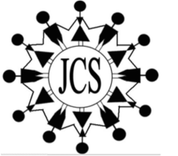Changes We Bring
Women Empowerment

Tribal Rights
Welfare & Rights
Women Empowerment
Youth
Child Rights
Hand in Glove with Panchayat Raj Institutions
Health Initiative
Microfinance and Sustainable Livelihoods
Migration
Communal Harmony
Associations with Campaigns
Impact Through Policy Interventions
Jan Chetna promotes socio-economic development of women through promoting their active participation in governance related issues and by collectivizing them. The organization incorporates a gender perspective into the planning, designing, adoption and execution of all programmes and processes, in order to promote equitable, effective and appropriate resource allocation to support gender equality and development programmes that enhance women’s empowerment and development.
Land Rights: Under FRA, individual rights certificates are obtained in the names of women, and work is done to secure rights over property of widowed and single women. We are also focussing on CFRs since the lives of women are closely linked with rights and access over Commons. Thereby, focussing not just on land-rights, but more-so on land-relations.
Elevating Status of Women to Farmers: Efforts are made to grant women the status of farmers under the Netri and Hariyali programs (MAKAAM network), enhancing their leadership capabilities, preserving indigenous traditions and cultural practices, and fighting against climate change.
Mahila Panchayats: Jan Chetna facilitates village level mahila panchayats, where more than 500 women are members. The mahila panchayats oversee investigations, case registrations, arbitration, judgements and follow-up of domestic violence cases. Jan Chetna further organizes legal literacy workshops and builds capacity of community based paralegal caseworkers who provide legal aid and counseling. These spaces provide an opportunity for women and men to discuss interventions and arbitrations to resolve disputes. This initiative also looks out for cost-effective, intermediary solutions that are women-led, gender sensitive and in touch with the community.
Role of Women in Panchayat Raj System: With 50% reservation in Panchayat Raj, elected women have been empowered to fulfill their duties and responsibilities, enhance their decision making and executive capacities, collaborate with local administration, implement government schemes, participate in budgeting, and make use of e-governance initiatives to strengthen village councils.
Role of Women in Caste Panchayats: Women in caste panchayats have taken initiatives to challenge harmful practices like dowry, witch accusations, child marriage, alcohol prohibition, and more, working to combat social evils.
Ekal Nari Shakti Sangathan (ENSS): For empowerment of widows, single and separated women, Jan Chetna along with other organizations formed the Ekal Nari Shakti Sangathan. The sangathan actively works to ensure rightful living for single women, and work towards ensuring last mile delivery of widow pensions and benefits under government schemes. They further work to resolve issues such as domestic violence, dayan pratha (witch hunting), and other matters such as access to drinking water and NREGA.
Sakhiyon ki Badi (SKB) Programme: This programme aims to educate and enroll illiterate and out of school girls in Rajasthan, and spread awareness to change the narrative around girl child education, by working closely with the community. In identified villages and hamlets which are most vulnerable, awareness campaigns were started and eligible girls were enrolled into community schools where they were provided in-class education. Teachers were also trained and individual support to each girl was extended.

